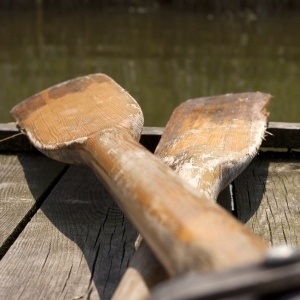 Earlier this summer I had the chance to pick up my 14-year old niece Adriana from a 3-week summer camp session in the mountains of North Carolina. Talking with her about her experience at camp spurred some thoughts that I wanted to share.
Earlier this summer I had the chance to pick up my 14-year old niece Adriana from a 3-week summer camp session in the mountains of North Carolina. Talking with her about her experience at camp spurred some thoughts that I wanted to share.
In Part 1 of this 2-part blog series, I wrote about the benefits and realities of “disconnecting” from 24/7 electronic communication. In this post, I write about how we might take a page from summer camp awards ceremonies and consider being more kind to ourselves, and more open to good things happening to us at the perfect time.
Picking up my camper
While making chit-chat with other adults and waiting for my niece to say her goodbyes to her camp friends, a camp staffer who was standing nearby told me that Adriana had received an award: The Broken Paddle.
Getting the “Broken Paddle”
The Broken Paddle? Different thoughts raced through my mind. First, that it’s a potentially silly name for an award. Then, taking a quick turn to the dark side, I started wondering how the paddle broke. Was anyone struck with it? Should I be concerned? Thankfully, I made my way back to less troubling waters and thought simply that, if it’s an award, wouldn’t you want to give the recipient a nice, functional paddle instead of a broken one?
Anyway… I was brought back to the present when the camp staffer leaned in to say, just in case I was thinking of not giving this award the attention it deserved on the trip home, “It’s kind of a big deal around here.” Then, maybe not seeing the appropriate reaction or level of enthusiasm on my part, she raised both eyebrows while nodding and said, “No, really.”
OK, got it—do NOT, under any circumstance, gloss over the Broken Paddle award. Message received.
A prestigious award
During the car ride back I probed a little bit, and it turns out that it’s in fact quite a prestigious award. Only one camper in the each session of 200 or so campers, ranging between the ages of 6 and 15, gets the award. The winner’s name is inscribed in the Broken Paddle. Ahh… I see. They don’t actually give anyone the paddle, figuratively or literally. Instead, the winner’s name is etched indelibly in the annals of Broken Paddle history! Makes much more sense now.
This is kind of how my conversation went with my niece after that:
Me: So how did you get the award, Adri? Was it a competition?
Adriana: Well, it usually goes to the best paddler, like the best canoe paddler, but I wasn’t the best.
Me: OK, so…why’d you get it?
Adriana: Because I was nice. And the counselors said I was helpful and had a good attitude, you know, I pitched in.
It may or may not go to the most skilled
Now, in my adult, cynical mind, I’m thinking this could be a ‘teacher’s pet’ type of award. But my niece continued.
Adriana: All the counselors vote on it. And all the campers were happy for me when they announced it.
So, it’s not a token award. It’s really intended to mean something very positive.
Our conversation goes on and she tells me how another camper—a boy—received a basketball-related award, though he clearly wasn’t the best basketball player. Why’d he get it? Because he had the right attitude about it all. He tried hard, and he improved a lot. And he got along with everyone.
Adriana: And it was so great to see him get that award. I think it was the perfect time for him to get it too, to give him a boost.
Me: So, was it like a pity award? Did they just give it to whomever they thought ‘needed’ it most?
Adriana: Oh no! No, no… He deserved it.
Sometimes awards and good things come at the perfect time
What do I take away from all this? Maybe we could all be a little kinder to ourselves. In this world where we sometimes tend to measure everything in terms of delivered results and performance metrics, maybe we can give ourselves points for effort and attitude, like they do at my niece’s summer camp. Points for pitching in and helping others. Not just for whether or not we get something done, but for how we go about it.
And like my niece pointed out about the boy who got the basketball award, maybe good things happen for us at the perfect time. And maybe it’s helpful to think so. And instead of thinking of reasons why we might not deserve it, we can focus instead on why that’s exactly the right thing to happen to us at that time.
I’d love to hear what you think? What are the benefits of being kinder to yourself? Of focusing on why you deserve good things, instead of why you don’t?
